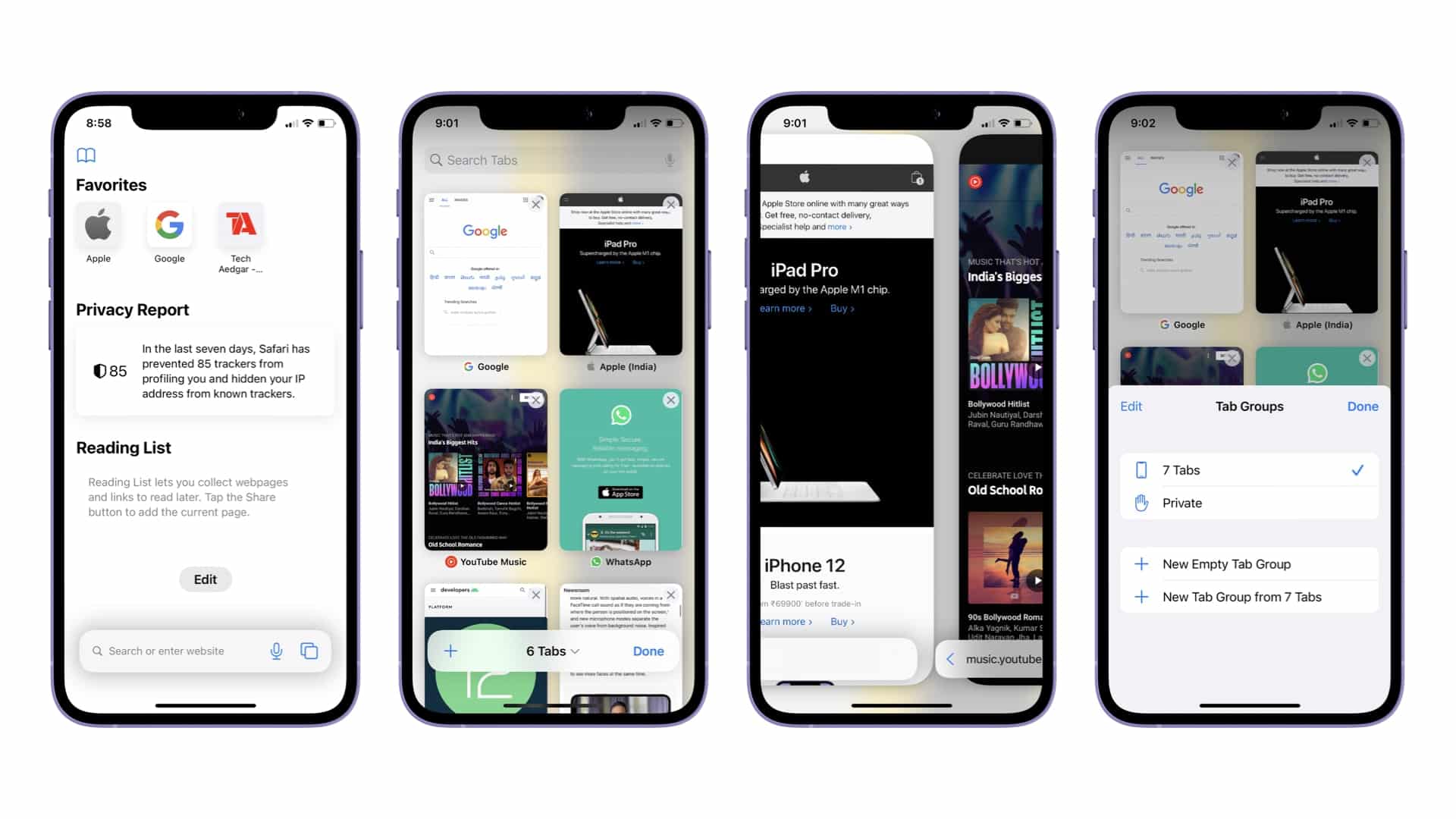This article explores the future trends in URL shortening technology and its applications, examining how this technology is evolving and its potential to shape the future of the internet.
The Evolution of URL Shortening Technology
URL shortening first emerged in the early 2000s as a solution to the problem of sharing long, complex URLs, especially on platforms with character limitations, such as Twitter. By creating shortened versions of URLs, users could share links more efficiently, without the fear of exceeding character limits. Early URL shorteners like TinyURL and Bit.ly became widely used, as they provided a simple yet effective way to make URLs more manageable.
As digital marketing and social media grew in popularity, the need for URL shortening expanded. With businesses, influencers, and content creators sharing links across various platforms, the demand for customizable and branded links increased. This led to the development of advanced that allowed users to not only shorten links but also track their performance, improve their branding, and enhance their overall user experience.

Integration of Artificial Intelligence and Machine Learning
One of the most exciting trends in URL shortening technology is the integration of artificial intelligence (AI) and machine learning (ML) to enhance the functionality of these services. AI and ML are increasingly being used to automate and optimize various aspects of URL shortening, including link creation, analytics, and security.
AI-powered URL shorteners could automatically analyze the content of the linked page and generate custom, relevant short URLs. For instance, if a business shares a link to a product page, an AI-powered URL shortener might automatically generate a link that includes the product name or category. This would not only make the URL more relevant and recognizable but could also enhance the branding of the link.
Machine learning algorithms can also be used to improve the accuracy of analytics by predicting the success of a link based on historical data. These algorithms could identify trends, such as the best time to share a link or the optimal length for a URL, helping businesses optimize their link-sharing strategies.
Furthermore, AI and ML could be leveraged to improve the security of URL shorteners by identifying potential phishing or malicious links before they are shared. By analyzing the content of a link and its destination, AI algorithms can flag suspicious links, protecting users from security threats and ensuring the integrity of online communication.
The Role of Customization and Branding
As businesses increasingly use URL shorteners for marketing purposes, the demand for customization and branding features is growing. In the future, we can expect to see even more advanced options for personalizing URLs, enabling businesses to create short links that are more reflective of their brand identity.
Custom domains will likely become the standard for URL-shortening services. Instead of using generic domains like “bit.ly” or “tinyurl.com,” businesses will be able to use their domain names for shortened links. For example, a company named “TechCorp” might use a custom domain like “tc.short” to create links such as “tc.short/product123” rather than “bit.ly/product123.” This approach not only strengthens brand recognition but also improves trustworthiness in the eyes of users.
Additionally, businesses may have the ability to customize the URL itself, not just the domain. This could include creating meaningful and recognizable short links that are tailored to specific campaigns, promotions, or products. For instance, a fashion retailer might create links like “style.short/sale2024” or “fashion.short/blackfriday” to promote special events or sales.

Increased Use of Analytics and Tracking
In the digital age, data is invaluable, and the ability to track the performance of URLs is one of the most powerful features of modern URL shortening services. As businesses rely more heavily on data-driven decision-making, the demand for advanced analytics and tracking tools will only grow.
URL shortening platforms of the future will likely offer even more sophisticated analytics, including real-time data on link performance, user engagement, and conversion rates. These platforms could provide detailed insights into who is clicking on links, where they are located, and which devices they are using. With this information, businesses can optimize their marketing campaigns and make more informed decisions about how and when to share links.
Advanced tracking features could also include the ability to integrate URL shortening services with other marketing tools, such as email marketing platforms, social media management software, and customer relationship management (CRM) systems. By combining URL shortening with other marketing tools, businesses can gain a more holistic view of their online presence and track the impact of every link they share.
Moreover, we can expect to see the integration of predictive analytics, which could provide businesses with actionable insights into the future success of their campaigns. By analyzing historical data, machine learning algorithms could predict which links are likely to perform well and which ones may need adjustments, allowing businesses to optimize their link-sharing strategies in real-time.

Enhanced Security Features
As the internet becomes more complex and threats like phishing and malware become more sophisticated, the need for secure URL-shortening services will continue to grow. In the future, we can expect URL shortening services to implement even more robust security features to protect users from harmful links.
One of the most important security trends is the use of encryption. URL shorteners of the future will likely employ advanced encryption methods to ensure that links are secure from end to end. This could include encrypting both the short URL and the destination URL, making it more difficult for cybercriminals to manipulate or redirect links to malicious sites.
Another key security feature will be the ability to verify the authenticity of URLs before they are shortened. This could include automated checks for phishing sites, malware, or suspicious behavior, ensuring that only safe links are shared. Additionally, URL-shortening platforms may incorporate multi-factor authentication (MFA) for users, adding an extra layer of protection against unauthorized access.
Custom short URLs with added security features will also become more common. For example, businesses may be able to generate short links that are only accessible to specific users or groups. This feature could be particularly useful for companies sharing sensitive information or confidential documents, as it would prevent unauthorized access to the links.
The Rise of URL Shortening for Mobile Applications
As mobile usage continues to dominate, URL-shortening services will increasingly be optimized for mobile applications. In the future, we can expect to see more mobile-friendly features, such as one-click URL shortening and the ability to shorten URLs directly from mobile apps.
Mobile-specific short links could also become more common, particularly for mobile app developers. By creating short URLs that redirect users to specific app store pages or in-app content, developers can make it easier for users to access and download their apps. This approach could significantly improve app discoverability and user acquisition rates.
Furthermore, URL shortening platforms may integrate with mobile marketing tools, allowing businesses to track the performance of links shared through mobile channels. With the ability to track clicks, conversions, and other metrics on mobile devices, businesses can fine-tune their mobile marketing strategies and ensure they are reaching their target audience effectively.

The Future of URL Shorteners in Social Media and Influencer Marketing
Social media and influencer marketing are two of the most powerful forces shaping the digital landscape today. As these platforms continue to grow in importance, URL shortening technology will play an even greater role in how businesses and influencers share content with their followers.
In the future, we can expect social media platforms to integrate URL shorteners directly into their interfaces, making it easier for users to create and share shortened links. This could include features that automatically generate short links for users when they share URLs, as well as analytics tools that help users track the performance of their shared links.
Influencers and content creators may also benefit from more advanced URL-shortening tools that allow them to create personalized, branded links for their followers. These links could be used to promote products, events, or campaigns, helping influencers build stronger connections with their audiences.
As the influencer marketing industry grows, businesses will increasingly turn to URL shorteners to track the success of their collaborations with influencers. With the ability to track the performance of links shared by influencers, businesses can gain valuable insights into the effectiveness of their campaigns and measure their return on investment (ROI).
FAQs
What is URL shortening?
URL shortening is the process of converting a long URL into a shorter, more manageable version. The shortened URL redirects users to the original, longer URL, making it easier to share and track.
Why is URL shortening important for businesses?
URL shortening is important for businesses because it helps streamline the process of sharing links, especially on platforms with character limits. It also provides valuable analytics and tracking tools that allow businesses to measure the success of their online campaigns.
Will URL shorteners become more secure in the future?
Yes, as cybersecurity threats evolve, URL shorteners will likely incorporate more advanced security features, such as encryption, phishing protection, and multi-factor authentication, to ensure that shared links are safe.

The future of URL-shortening technology is bright, with continuous advancements that promise to make these services even more valuable for businesses, marketers, and everyday users. From enhanced security features to AI-powered automation and increased customization options, URL shorteners are poised to evolve into even more sophisticated tools that can streamline online communication and improve user engagement. As we look ahead, the role of URL shorteners in the digital ecosystem will only continue to grow, offering businesses and individuals powerful new ways to share, track, and optimize their online content.








